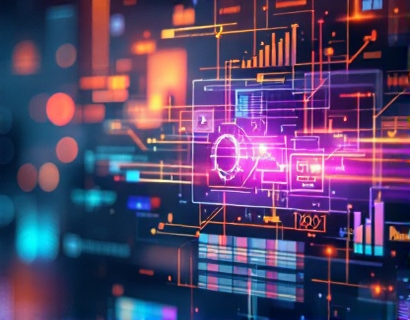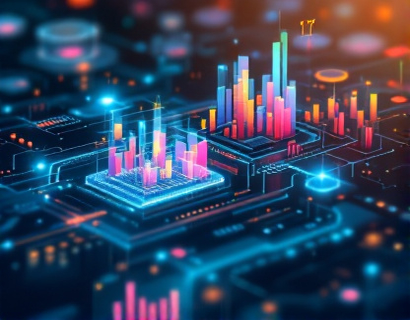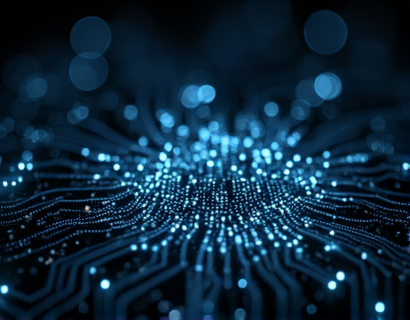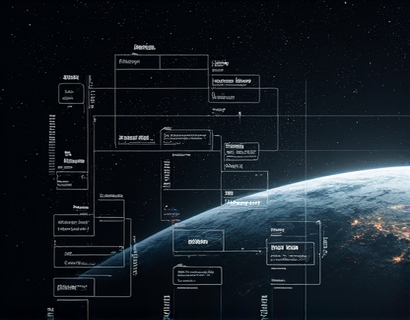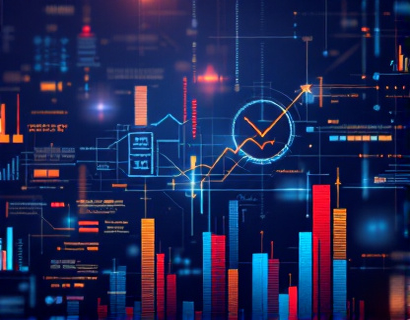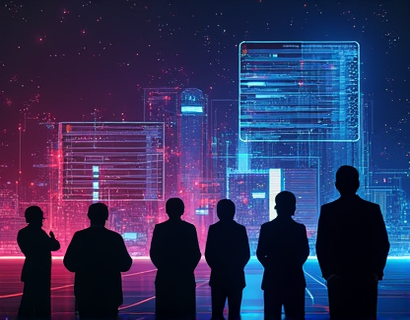Decentralized Productivity: Harnessing AI and Crypto for Next-Gen App Innovation
The intersection of artificial intelligence and cryptocurrency is giving rise to a new era of app innovation, one that promises to turbocharge productivity and redefine how we interact with digital tools. This fusion is not just a technological curiosity but a practical solution that addresses the growing need for efficient, secure, and user-centric applications. As we delve into this topic, we will explore how AI and crypto are synergistically enhancing app development, providing tech professionals and early adopters with tools that streamline tasks and boost productivity in the digital age.
The traditional app development landscape is characterized by centralized control, where a single entity or a small group of entities hold significant power over the application's functionality, data, and user experience. This centralization, while providing some benefits, also introduces bottlenecks, security risks, and limited scalability. The advent of decentralized technologies, powered by blockchain and AI, is challenging these norms, offering a more democratic and robust approach to app development and usage.
Decentralization: The Backbone of Next-Gen Apps
Decentralization, at its core, means distributing control and decision-making across a network of nodes rather than relying on a central authority. In the context of app development, this translates to applications that are not controlled by a single entity but are maintained by a community of users and developers. This shift has profound implications for app innovation and productivity.
One of the primary benefits of decentralization is enhanced security. By distributing data across a network, the risk of a single point of failure is significantly reduced. This makes decentralized applications (dApps) more resilient to cyber attacks and data breaches, which are increasingly common in centralized systems. For users, this means a higher level of trust and confidence in the applications they use, leading to greater adoption and productivity.
Another advantage of decentralization is transparency. Blockchain technology, the backbone of decentralized systems, provides an immutable and transparent ledger of all transactions and interactions within the network. This transparency ensures that users can verify the integrity of the application and the data it handles, reducing the need for intermediaries and increasing trust.
AI: The Intelligence Driver
Artificial intelligence, on the other hand, brings a different set of capabilities to the table. AI can process vast amounts of data, identify patterns, and make predictions or decisions with minimal human intervention. When integrated with decentralized systems, AI can enhance app functionality in several ways.
Firstly, AI can improve user experience by personalizing the app's behavior based on user preferences and behavior. For instance, a decentralized productivity app can use AI to analyze a user's work patterns and suggest optimal times for tasks, automate repetitive actions, and even predict potential roadblocks. This level of personalization not only makes the app more user-friendly but also significantly boosts productivity.
Secondly, AI can automate complex tasks that would otherwise require significant human effort. In a decentralized environment, these tasks can be distributed across the network, leveraging the collective computing power of the nodes. For example, AI-driven data analysis, content generation, and even smart contract execution can be performed more efficiently and cost-effectively in a decentralized setup.
Synergy Between AI and Crypto
The true power of combining AI and cryptocurrency lies in their complementary strengths. Cryptocurrency provides a decentralized and secure means of transaction and data storage, while AI offers intelligent and adaptive functionalities. Together, they create a powerful ecosystem for app innovation.
One of the key areas where this synergy shines is in the development of decentralized finance (DeFi) applications. DeFi platforms leverage AI to enhance trading algorithms, risk management, and portfolio optimization. These AI-driven tools can analyze market data, predict trends, and execute trades with high precision, all within a secure and transparent blockchain environment. This not only democratizes access to financial services but also increases the efficiency and reliability of financial transactions.
Beyond finance, the combination of AI and crypto is revolutionizing various industries, from healthcare to supply chain management. In healthcare, AI-powered dApps can analyze medical data from multiple sources, providing doctors with real-time insights and recommendations. This not only improves diagnostic accuracy but also streamlines the healthcare process, making it more efficient and patient-centric.
In supply chain management, decentralized platforms equipped with AI can track products from origin to destination, ensuring transparency and traceability. AI algorithms can predict demand, optimize routes, and identify potential bottlenecks, all while maintaining an immutable record of transactions. This level of visibility and control significantly enhances operational efficiency and reduces costs.
Enhancing Productivity with Decentralized Tools
For productivity-focused professionals, the integration of AI and crypto in app development offers a suite of tools that can transform the way they work. Decentralized productivity apps powered by AI can automate routine tasks, manage projects, and facilitate collaboration in a secure and transparent manner.
One such tool is a decentralized task management app that uses AI to prioritize tasks based on urgency and importance, assign resources efficiently, and track progress in real-time. Since the app is decentralized, users have full control over their data and can collaborate with team members without relying on a central server. This not only enhances security but also ensures that the app remains functional even if some nodes go offline.
Another example is a decentralized document collaboration platform that leverages AI for content suggestion, grammar checking, and version control. AI algorithms can analyze the content and provide real-time feedback, while blockchain ensures that all changes are recorded and accessible to all collaborators. This combination of AI and decentralization creates a seamless and secure environment for team collaboration, significantly boosting productivity.
Challenges and Considerations
While the potential of AI and crypto in app innovation is vast, there are several challenges and considerations that need to be addressed. One of the primary challenges is the technical complexity involved in building and maintaining decentralized systems. Developers need to have a solid understanding of blockchain technology and AI algorithms, which can be a barrier for some.
Another challenge is the regulatory landscape. As decentralized applications operate outside the traditional legal frameworks, there is a need for clear regulations that ensure user protection and prevent misuse. This is an area where ongoing dialogue between technologists, policymakers, and the community is crucial.
Scalability is also a significant concern. While blockchain technology has made significant strides, it still faces limitations in terms of transaction speed and cost. However, ongoing developments in blockchain scalability solutions, such as layer 2 protocols and sharding, are addressing these issues, making decentralized apps more viable for widespread use.
The Future of Decentralized Productivity
Looking ahead, the fusion of AI and crypto is poised to drive even more innovation in app development. As technology advances, we can expect to see more sophisticated AI models integrated into decentralized platforms, offering even more personalized and intelligent services. The rise of Web 3.0, characterized by decentralized internet protocols and user-owned data, will further accelerate this trend.
For tech professionals and early adopters, this is an exciting time to be involved in the digital space. The tools and platforms emerging from this fusion not only promise to enhance productivity but also redefine the principles of trust, security, and user empowerment. By embracing these technologies, we can build a more resilient, efficient, and inclusive digital ecosystem.
In conclusion, the combination of AI and cryptocurrency is not just a technological novelty but a transformative force that is reshaping app innovation. By leveraging the strengths of both domains, we can create decentralized applications that are secure, transparent, and highly productive. As we continue to explore and develop these technologies, the future of digital productivity looks brighter and more promising than ever.










